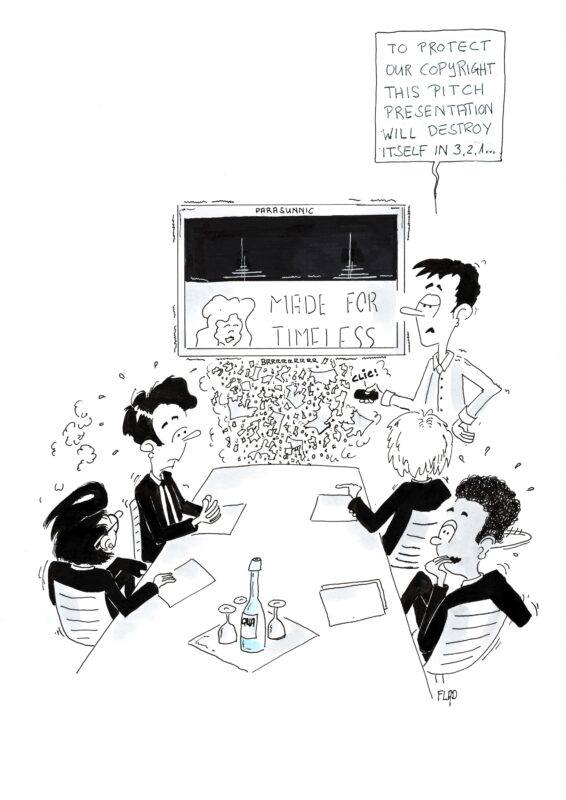Woolley Marketing: Is advertising IP worth anything… or nothing?
In his regular column for Mumbrella, Trinity P3 founder and global CEO Darren Woolley wonders how agencies can best protect their valuable creative work produced as part of client pitches. A Banksy-style self-destruct mode is one colourful idea.
An agency is invited to pitch a new client. They come a close second in the process, only to see their idea, or something very similar, appear for the client a few months later. The agency is rightly angry and takes to LinkedIn to accuse the client of stealing their ideas.
Another client, wanting to avoid this situation, invites agencies to participate in a pitch for their business. But to be part of this, the agencies must sign a non-disclosure agreement that happens to have a clause requiring the assignment of all intellectual property arising from the process to the client. For a modest pitch fee.

Copyright Dennis Flad – reprinted with permission


It’s nearly 30 years since I first started writing about adland and I can’t even believe this is still a discussion.
The fossilised remnants of accreditation where the creative and the idea was just free steak knives. Takes me back to our podcast when I left the game. A change in revenue streams with loss of the free media kickbacks that enriched so many agency execs that the industry has still not really come to terms with.
Question for Darren, if a concept is presented by an agency and rejected by a client, is that IP still owned by the client?
Richard that will depend on the agency and client agreement. If there is no agreement, then all IP created by the agency is owned by the agency until transferred to the client through mutual agreement. (This naturally excluded any pre-existing IP in the concept that belongs to the client already, such as a logotype or packaging etc.)
If a contract is in place that all IP created is vested or transferred to the client, then even if the concept is rejected, the IP is to be transferred to the client.
To better understand your current agreements with your clients, I recommend getting legal advice from a qualified lawyer, ideally a specialist in Intellectual Property law and with a commercial focus.
If you’re billing me for the team under retainer or even as a project fee (unless it’s stipulated otherwise), you bet we do.
It’s also worth considering that in the case of paid pitches – specifically a token payment – it is often more to do with addressing internal legal concerns than being about goodwill towards participating agencies.
You can be certain if a dispute arose over two similar ideas in a pitch, that token payment would likely favour us clients.
Not legal advice – just a seasoned clientsider who’s heard the same thing for two decades.